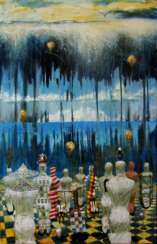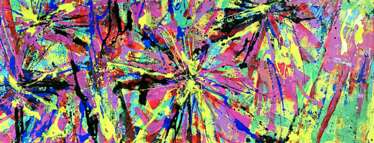71 Items by auctions and galleries:
guides
Lot 5323 A Visor Cap for a Luftwaffe Guide/Instructor of Hitler Youth Pilots Technical Preschool
A106us: A US Lifetime Headgear Collection and other Imperial and WW II Collectibles 

Hermann Historica
A106us: A US Lifetime Headgear Collection and other Imperial and WW II Collectibles
Date: 08.11.2025 14:00 UTC +01:00
Number of lots in the catalog: 511
daily totem 029
Ilgvars Zalans (b. 1962)  Shop Zalans Ilgvars
Shop Zalans Ilgvars

Ilgvars Zalans
24.09.1962
Latvia
Ilgvars Zalans, a Latvian painter, has exhibited in the United States and Switzerland. He has also completed several residencies in Asia and South America. Since 2007, Zalans has crossed the globe with his action-painting performances, visiting over 33 countries. All of his compositions, whether an object, creature or place, reflect fundamental aspects of the human experience.
Exhibitions
2021 Gangwon Triennale 2021
Hongcheon Art Museum - Gangwon, South Korea
2021 G.ART gallery, Berlin, Germany
2015 SCOPE Miami Beach 2015 , Miami USA
2015 SCOPE Art Basel 2015 , Basel, SWITZERLAND
2013 ArtexParte II, Buenos Aires, ARGENTINA
2014 Artist in Residency grant ,Perahu Art Center, Yogyakarta INDONESIA
2012 Artist in Residency grant ,HOM Art Center, KualaLumpur, MALAYSIA
2011 Artist in Residency grant ,Highland Art Center, Chengdu, CHINA
2010 Artist in residency grant , Kamiyama Tokushima, JAPAN
Artist in Residency grant , Organhaus Art center Chongqing CHINA
2007 Artist in residency The Rodríguez-Amat Foundation, Girona, SPAIN

Artist shop
Zalans Ilgvars
Latvia
Number of products: 9
daily totem 022
Ilgvars Zalans (b. 1962)  Shop Zalans Ilgvars
Shop Zalans Ilgvars

Ilgvars Zalans
24.09.1962
Latvia
Ilgvars Zalans, a Latvian painter, has exhibited in the United States and Switzerland. He has also completed several residencies in Asia and South America. Since 2007, Zalans has crossed the globe with his action-painting performances, visiting over 33 countries. All of his compositions, whether an object, creature or place, reflect fundamental aspects of the human experience.
Exhibitions
2021 Gangwon Triennale 2021
Hongcheon Art Museum - Gangwon, South Korea
2021 G.ART gallery, Berlin, Germany
2015 SCOPE Miami Beach 2015 , Miami USA
2015 SCOPE Art Basel 2015 , Basel, SWITZERLAND
2013 ArtexParte II, Buenos Aires, ARGENTINA
2014 Artist in Residency grant ,Perahu Art Center, Yogyakarta INDONESIA
2012 Artist in Residency grant ,HOM Art Center, KualaLumpur, MALAYSIA
2011 Artist in Residency grant ,Highland Art Center, Chengdu, CHINA
2010 Artist in residency grant , Kamiyama Tokushima, JAPAN
Artist in Residency grant , Organhaus Art center Chongqing CHINA
2007 Artist in residency The Rodríguez-Amat Foundation, Girona, SPAIN

Artist shop
Zalans Ilgvars
Latvia
Number of products: 9
Lot 17 Augustine, Ps-Augustine, Jerome, Chrysostom, et al.
Valuable Books, Manuscripts and Photographs, including Highlights from The Royal Society of Medicine 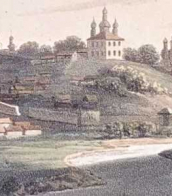

CHRISTIE'S
Valuable Books, Manuscripts and Photographs, including Highlights from The Royal Society of Medicine
Date: 10.12.2025 12:00 UTC +00:00
Number of lots in the catalog: 213
Lot 131 HORTUS SANITATIS
Valuable Books, Manuscripts and Photographs, including Highlights from The Royal Society of Medicine 

CHRISTIE'S
Valuable Books, Manuscripts and Photographs, including Highlights from The Royal Society of Medicine
Date: 10.12.2025 12:00 UTC +00:00
Number of lots in the catalog: 213
Lot 69 VEGETIUS RENATUS, Flavius (d. 450) [and 6 others]
Valuable Books, Manuscripts and Photographs, including Highlights from The Royal Society of Medicine 

CHRISTIE'S
Valuable Books, Manuscripts and Photographs, including Highlights from The Royal Society of Medicine
Date: 10.12.2025 12:00 UTC +00:00
Number of lots in the catalog: 213
Lot 116 MESUE, Johannes de, the younger (ps.? MASAWAIH-al-MARDINI, fl. 10th century?)
Valuable Books, Manuscripts and Photographs, including Highlights from The Royal Society of Medicine 

CHRISTIE'S
Valuable Books, Manuscripts and Photographs, including Highlights from The Royal Society of Medicine
Date: 10.12.2025 12:00 UTC +00:00
Number of lots in the catalog: 213
Lot 5001 Helm für Offiziere im 1. Badischen Leib-Grenadier-Regiment Nr. 109
A106us: A US Lifetime Headgear Collection and other Imperial and WW II Collectibles 

Hermann Historica
A106us: A US Lifetime Headgear Collection and other Imperial and WW II Collectibles
Date: 08.11.2025 14:00 UTC +01:00
Number of lots in the catalog: 511
Lot 5003 A helmet for IR 89 Mecklenburg Grenadier Officers
A106us: A US Lifetime Headgear Collection and other Imperial and WW II Collectibles 

Hermann Historica
A106us: A US Lifetime Headgear Collection and other Imperial and WW II Collectibles
Date: 08.11.2025 14:00 UTC +01:00
Number of lots in the catalog: 511
Lot 5009 Preußen - Helm für Reserveoffiziere des Grenadier-Regiments Nr. 4
A106us: A US Lifetime Headgear Collection and other Imperial and WW II Collectibles 

Hermann Historica
A106us: A US Lifetime Headgear Collection and other Imperial and WW II Collectibles
Date: 08.11.2025 14:00 UTC +01:00
Number of lots in the catalog: 511
Lot 5010 Preußen - Helm für Offiziere des Grenadier-Regiments Nr. 7
A106us: A US Lifetime Headgear Collection and other Imperial and WW II Collectibles 

Hermann Historica
A106us: A US Lifetime Headgear Collection and other Imperial and WW II Collectibles
Date: 08.11.2025 14:00 UTC +01:00
Number of lots in the catalog: 511
Lot 5011 Preußen - Helm für Offiziere des Grenadier-Regiments Nr. 8
A106us: A US Lifetime Headgear Collection and other Imperial and WW II Collectibles 

Hermann Historica
A106us: A US Lifetime Headgear Collection and other Imperial and WW II Collectibles
Date: 08.11.2025 14:00 UTC +01:00
Number of lots in the catalog: 511
Lot 5013 A shako for Officers in the 2nd Prussian Jaeger Battalion
A106us: A US Lifetime Headgear Collection and other Imperial and WW II Collectibles 

Hermann Historica
A106us: A US Lifetime Headgear Collection and other Imperial and WW II Collectibles
Date: 08.11.2025 14:00 UTC +01:00
Number of lots in the catalog: 511
Lot 5014 A shako for Officers in the 10th Prussian Jaeger Battalion
A106us: A US Lifetime Headgear Collection and other Imperial and WW II Collectibles 

Hermann Historica
A106us: A US Lifetime Headgear Collection and other Imperial and WW II Collectibles
Date: 08.11.2025 14:00 UTC +01:00
Number of lots in the catalog: 511
Lot 5015 Helm für Offiziere des Dragoner-Regiments Nr. 3
A106us: A US Lifetime Headgear Collection and other Imperial and WW II Collectibles 

Hermann Historica
A106us: A US Lifetime Headgear Collection and other Imperial and WW II Collectibles
Date: 08.11.2025 14:00 UTC +01:00
Number of lots in the catalog: 511
Lot 5016 Helm für Offiziere des Dragoner-Regiments Nr. 16, mit Haarbusch
A106us: A US Lifetime Headgear Collection and other Imperial and WW II Collectibles 

Hermann Historica
A106us: A US Lifetime Headgear Collection and other Imperial and WW II Collectibles
Date: 08.11.2025 14:00 UTC +01:00
Number of lots in the catalog: 511
Lot 5019 A Prussian Line Uhlan Officer czapka, Service
A106us: A US Lifetime Headgear Collection and other Imperial and WW II Collectibles 

Hermann Historica
A106us: A US Lifetime Headgear Collection and other Imperial and WW II Collectibles
Date: 08.11.2025 14:00 UTC +01:00
Number of lots in the catalog: 511
Lot 5020 A shako for Saxon Fusilier Regiment 108 Enlisted Men, with cover
A106us: A US Lifetime Headgear Collection and other Imperial and WW II Collectibles 

Hermann Historica
A106us: A US Lifetime Headgear Collection and other Imperial and WW II Collectibles
Date: 08.11.2025 14:00 UTC +01:00
Number of lots in the catalog: 511
Lot 5023 A helmet for IR 119 Württemberg Officers
A106us: A US Lifetime Headgear Collection and other Imperial and WW II Collectibles 

Hermann Historica
A106us: A US Lifetime Headgear Collection and other Imperial and WW II Collectibles
Date: 08.11.2025 14:00 UTC +01:00
Number of lots in the catalog: 511
Lot 125 FALCUTIUS, Nicolaus (d. c.1412)
Valuable Books, Manuscripts and Photographs, including Highlights from The Royal Society of Medicine 

CHRISTIE'S
Valuable Books, Manuscripts and Photographs, including Highlights from The Royal Society of Medicine
Date: 10.12.2025 12:00 UTC +00:00
Number of lots in the catalog: 213
Dawn Time
Julia Dyachenko (b. 1977)  Shop Dyachenko Julia
Shop Dyachenko Julia

Julia Dyachenko
05.11.1977
Russia
Julia Dyachenko is Contemporary Abstract Artist, based in Moscow, Russia.
Eurasian Art Union member since 2021.
Julia Dyachenko comes fr om one of the harshest regions of Russia — Siberia wh ere cold, snow and savage scenery create special living conditions. It was the beauty of local landscapes that has impressed her since her childhood and has inspired to express her feelings through painting. Julia wanted to more fully express her experience through the visualization of unspoken sensations. The result was a series of artworks in the abstract impressionism genre.
Her artworks constantly participate in international exhibitions and competitions

Artist shop
Dyachenko Julia
Russia
Number of products: 5
Stalker School
Sergiy Roy (b. 1958)  Shop Roy Sergiy
Shop Roy Sergiy

Sergiy Roy
04.04.1958
Ukraine
EXHIBITIONS:
INTERNATIONAL ART EXHIBITION,
MOSKOW, RUSSIA, WARSAW, POLAND, 1984
BASHKIRTSEV’S ART EXHIBITION, MUSEUM OF FINE ART, POLTAVA, UKRAINE, 1988
AVAN/ART IN ROVANIEMI, FINLAND, 1990
ANNUAL NATIONAL ART EXHIBITION, KYIV, UKRAINE, 1990
AVAN/ART, MUSEUM OF FINE ART, MURMANSK, RUSSIA, 1990
AVAN/ART IN JACKSONVILLE, KENT GALLERY, JACKSONVILLE, FLORIDA, USA, 1991
AVAN/ART IN JACKSONVILLE, DAWNTOWN GALLERY, JACKSONVILLE, FLORIDA, USA, 1991
ME+ME+ME+ME+…/AVAN CENTER OF CULTURE MURMANSK, RUSSIA, 1992
NATIONAL EXHIBITION ART GALLERY, KIYV, UKRAINE, 1993
PAN-UKRAINE, DNIPROPETROVSK, UKRAINE, 1995
EXHIBITION MODERN ART GALLERY, POLTAVA, UKRAINE, 2003
REGIONAL EXHIBITION MODERN ART GALLERY, POLTAVA, UKRAINE, 2005
REGIONAL EXHIBITION MODERN ART GALLERY, POLTAVA, UKRAINE, 2007
KYIV-ART. 2008 HOUSE OF TEACHER ,KYIV , UKRAINE 2008
M-ART GALLERY KHARKIV, UKRAINE 2010
IN GARDENS OF VICTORY GALLERY , ODESSA, UKRAINE 2011
Florence Design Week "Crossing People" Exhibition,FLORENCE,ITALY,2013
Gallery Fine ART, POLTAVA,UKRAINE,2013
Gallery " TRYPTYH", KYIV,UKRAINE,2014
Fine ART Gallery ,POLTAVA,UKRAINE,2014
Ukrainian Free Universety, MUNKHEN,GERMANY,2014-2015
ARTGESCHOSS, internationale kunstausstellung, Salzgitter Bad,GERMANY,2017
Art Revolution Taipei,Taiwan , 台北新藝術博覽會,2018
Private collections:
Mr. Roman Kupchinsky (USA, New York)
Dr. Ulf Bethmann (Germany, Hamburg)
Ms. Monika Platek (Poland, Krakov)
Museums and collection:
Jacksonville College (Florida, USA);
Khmelnitsckiy National Art Museum (Ukraine);
Poltava Art Museum (Ukraine);
Modern Art Gallery Poltava (Ukraine);
Austria, Australia, Dubai, USA, Germany, England, Russia, Israel, Irland, New Seland, Taiwan, Ukraine,Poland.

Artist shop
Roy Sergiy
Ukraine
Number of products: 209
Abstraction
Marina Klimanova (b. 1981)  Shop Klimanova Marina
Shop Klimanova Marina

Marina Klimanova
29.03.1981
Russia
Климанова Марина родилась в Рязани в 1981г.
В 2002 году закончила Рязанское художественное училище им. Вагнера г. Рязани, по специальности художник педагог, в мастерской А.М. Ковалева.
В 2008 году закончила Санкт-Петербургскую художественно-промышленную академию им. Барона Штиглица, на
отделении монументально декоративной живописи, в мастерской проф. В.Г. Леканова.
Выставки: 2009г - "Живопись" персональная выставка в Рязанском художественном училище им. Г. К. Вагнера.
Картины выполненны в стиле экспрессионизм. Работы находятся в частных коллекциях России, Америки, Европы. Награды художника: 2013г - Диплом 1 степени в номинации живопись за работу "Любовь". За участие в международной выставке- конкурсе "Я хочу сказать об этом". Рязань. 2014г - Диплом 3 степени за серию лирических пейзажей. Международная художественная выставка "Секреты жизни" в ЦДХ Москва.

Artist shop
Klimanova Marina
Russia
Number of products: 20


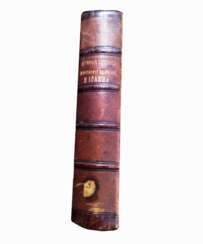

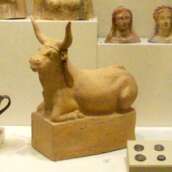
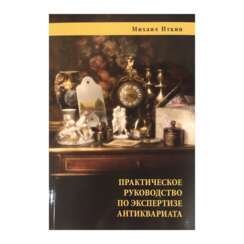


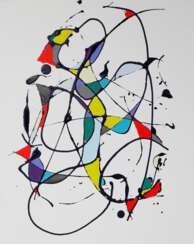






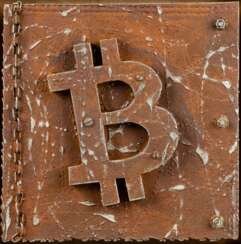


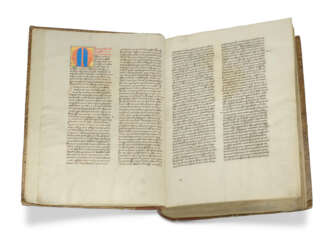



![VEGETIUS RENATUS, Flavius (d. 450) [and 6 others]](/assets/image/picture_5109163/1627a/0ef1241ebf6c787f20917e69d81501a61765321200jpg__fix_374_244.jpeg)
![VEGETIUS RENATUS, Flavius (d. 450) [and 6 others]](https://veryimportantlot.com/assets/image/picture_5109163/1627a/0ef1241ebf6c787f20917e69d81501a61765321200jpg__fix_374_244.jpeg)






































